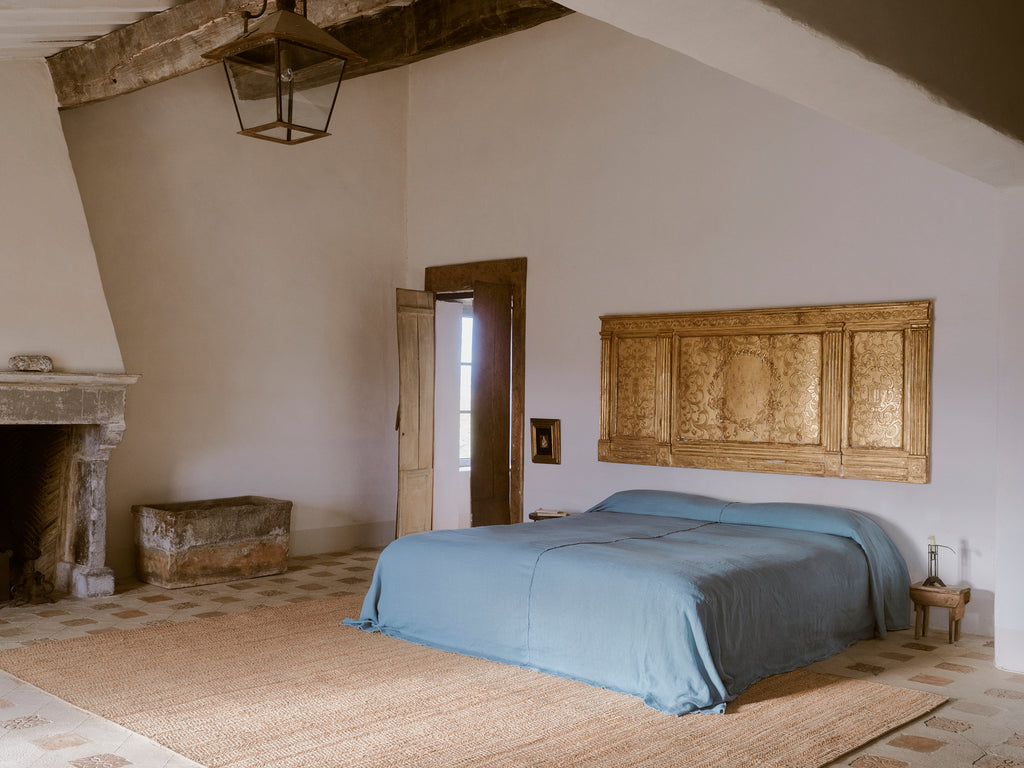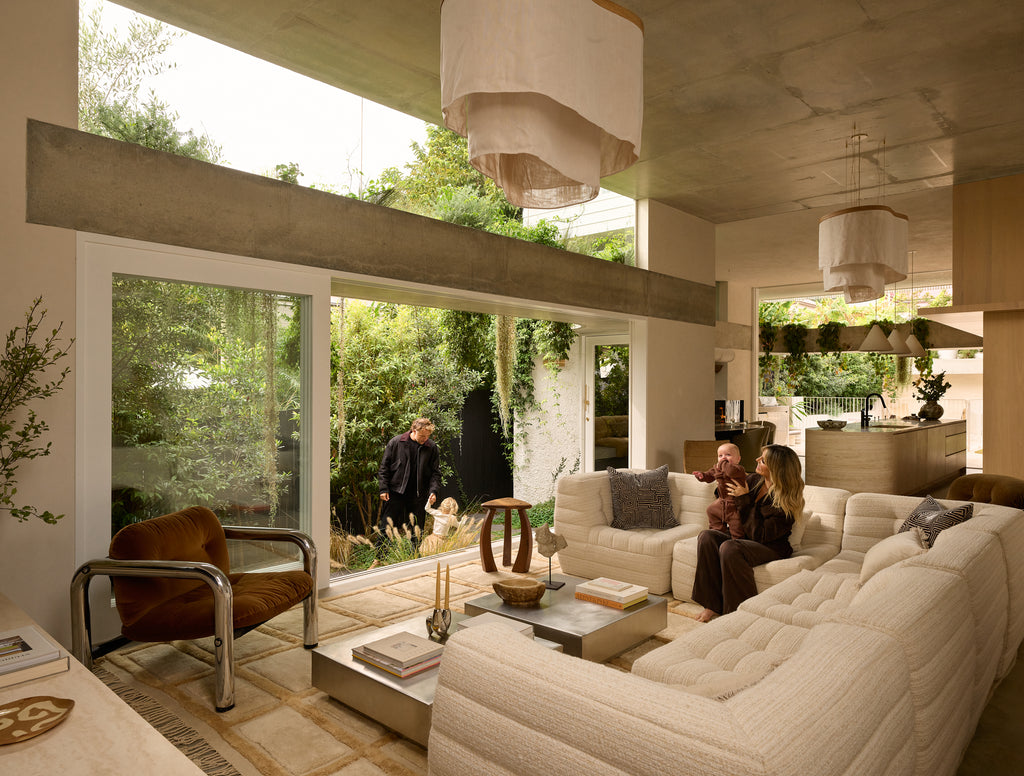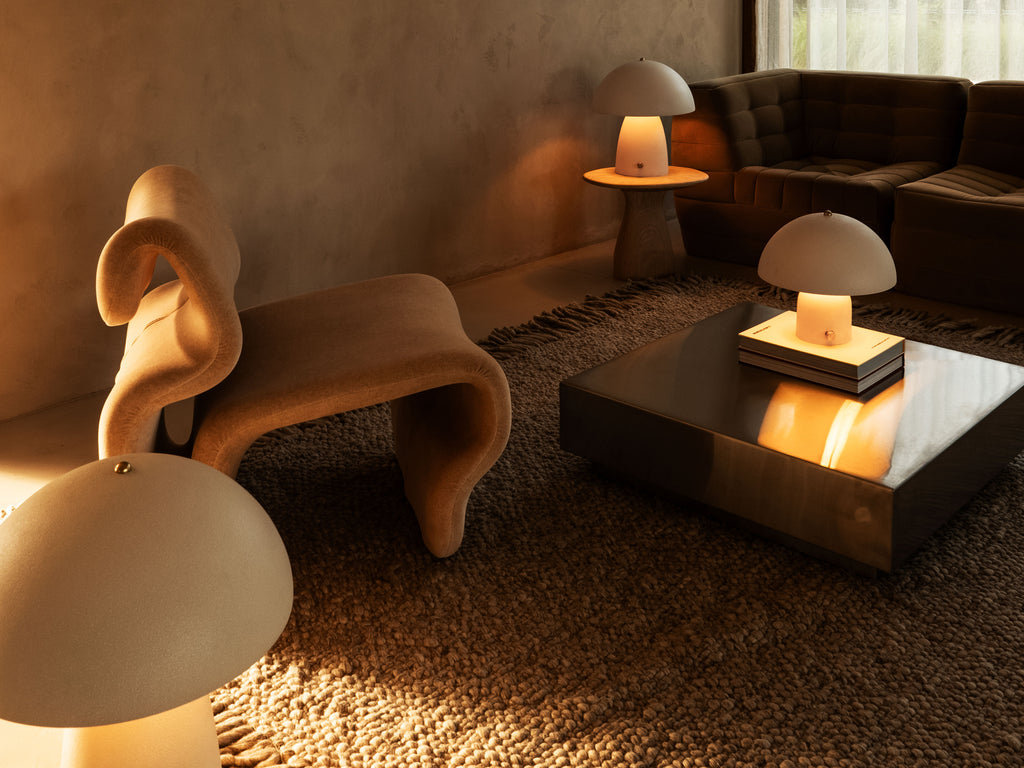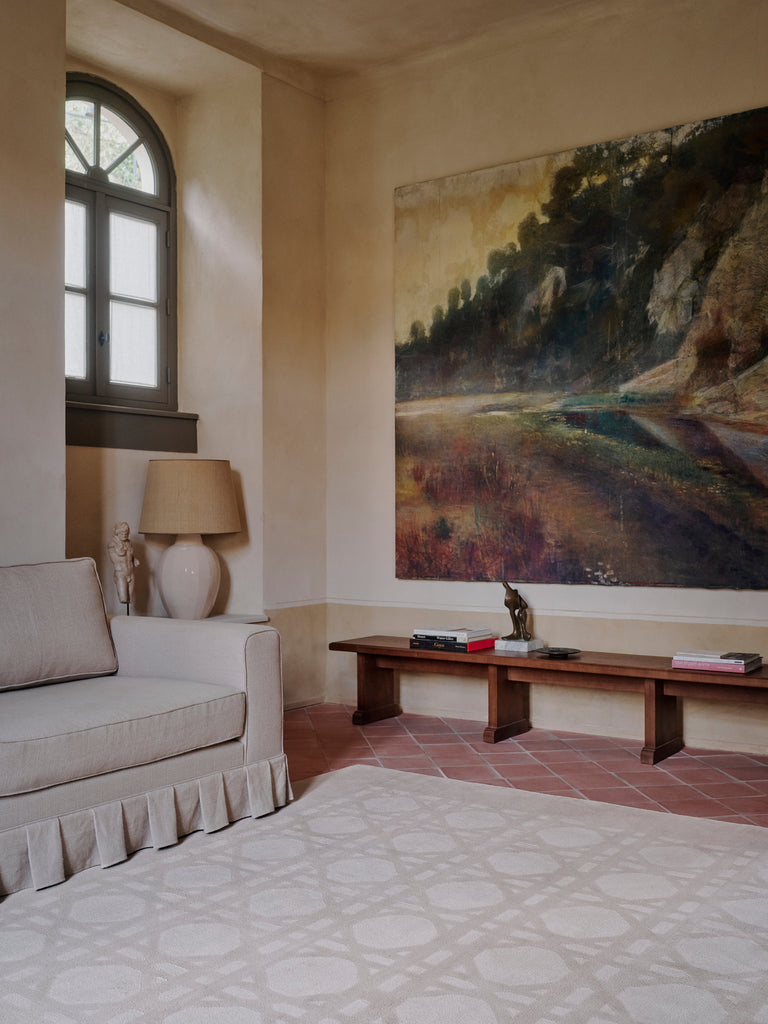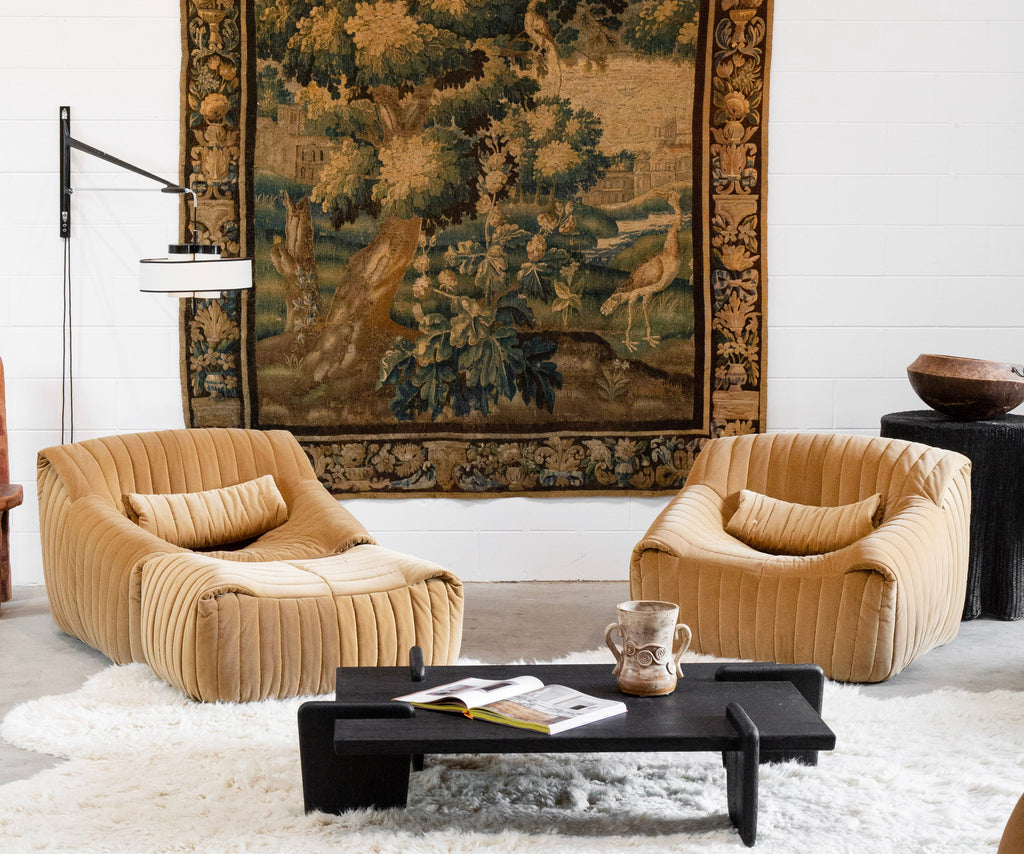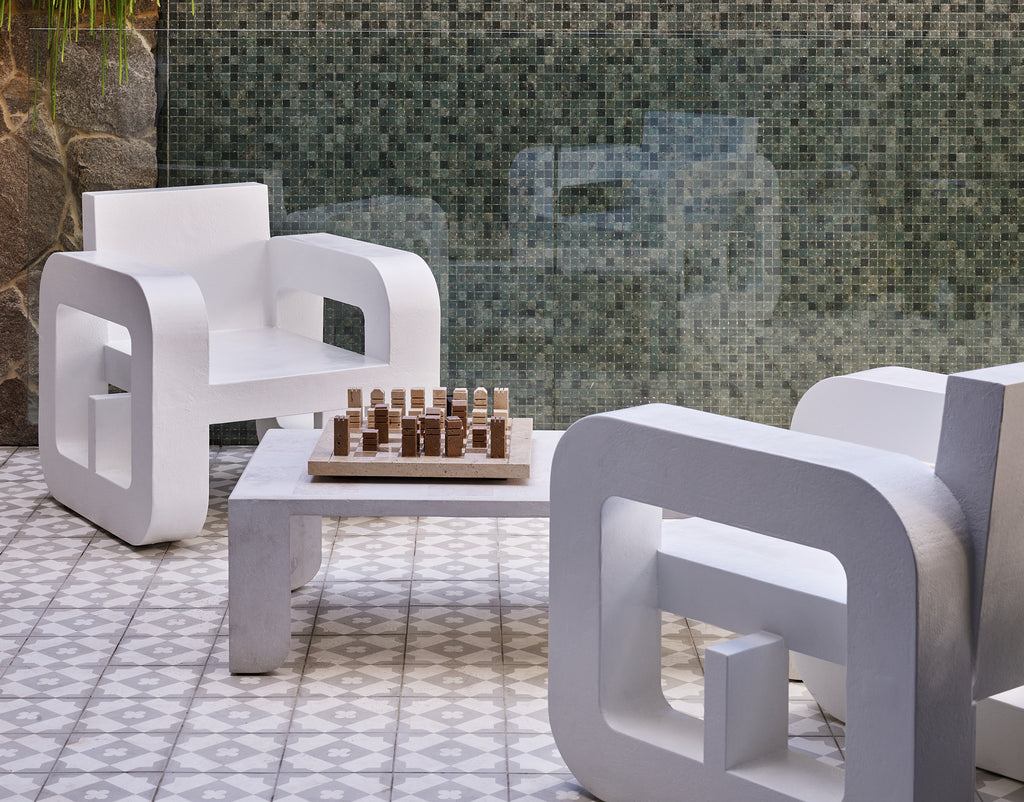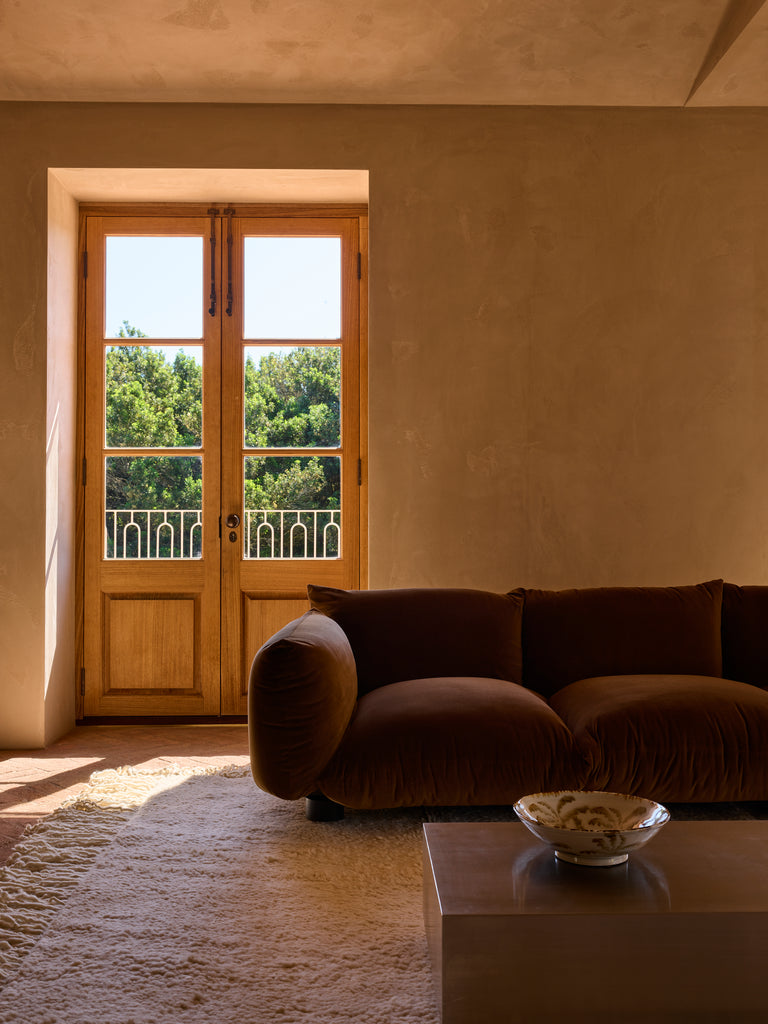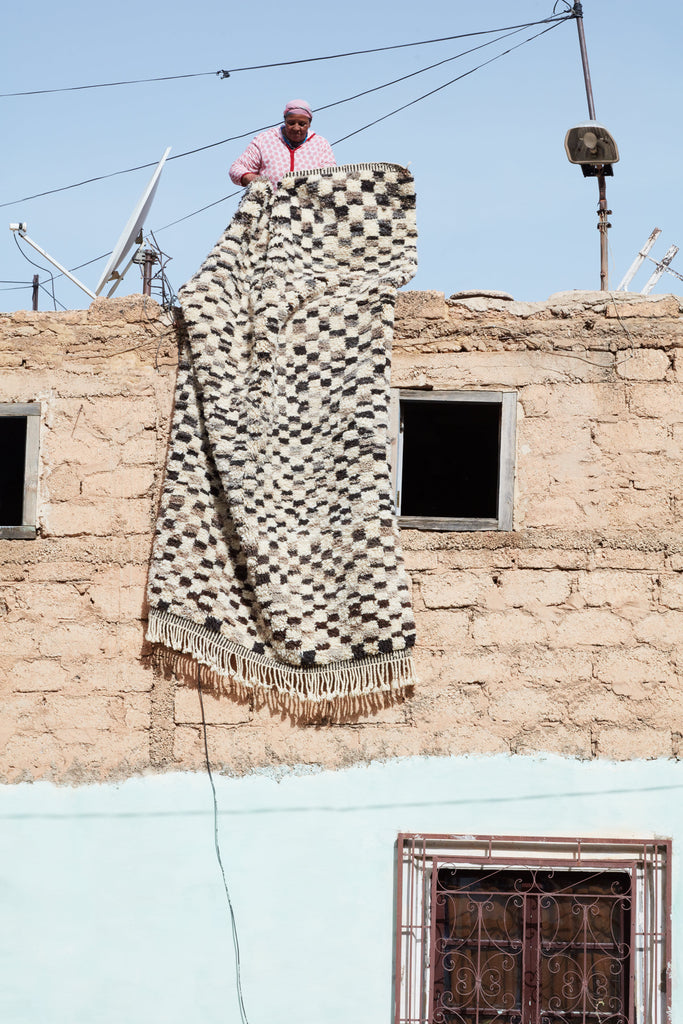
Tête-à-tête
The important work of Artisan Links
Imagine that your work helped hundreds, and at times thousands of refugee women each day - this is the important work of Artisan Links.
Artisan Links are a collective of 800 Afghani refugee women, led by the infinitely resilient and dedicated Tahira Afridi. Providing access to meaningful work, respect for values, tradition and above all, a sustainable financial independence.
Since 1985, Artisan Links have helped empower and uplift thousands of women in need, during dark times of war and displacement.
We spoke to Tahira about her love for what she does, and how she couldn't imagine doing anything else...
Please tell us about the story of Artisan Links, and how it came to be?
In 1985, when the soviet war started in Afghanistan, refugees began crossing the border to Pakistan.
At that time Danish Committee to Afghan Refugees (DACAAR) began working on water and sanitation at the refugee camps. At one of the camp hospitals many women were seen depressed and delusional. A female DACAAR staff member started talking to them and on return she decided to engage these women in activities which would keep their minds busy and healthy. This is how DACAAR Sewing Center came into being.
The refugee women were expert embroiders so it was decided to market their products and a successful non profit organization was built. For many years the Sewing Project supported around 3000 refugee women. The model was successful because this gave the women self respect as they were earning and were not on charity. After 9/11 when all the international NGOs started moving to Afghanistan it was decided to close the Sewing Center. At this point another DACAAR staff member took over the Center and kept it going. By then, I was part of the Project as the GM so we both worked closely and expanded the project to Afghanistan as all the expats were there and opening a handicraft shop in Kabul was the best thing to do. For years Dr. Kerry Jane was running the Kabul office which was now registered as Zardozi Program and I was running Zardozi Enterprise in Pakistan. Production was done in Pakistan as refugee women were here while Kabul was our sales hub. By then Zardozi had become a successful NGO in Afghanistan.
Unfortunately Kerry Jane, our Executive Director was kidnapped in Jalalabad, Afghanistan. This event brought the Afghanistan operation to a sudden hold. We started loosing sales due to security issues increasing in Afghanistan. Thankfully Kerry Jane was released after 4 to 5 months, but she had to leave for her home in Australia. Here is Pakistan I was left to take care of 3000 women but our income which was solely coming from the Sales in Kabul stopped. In 2017 Zardozi was re registered as Artisan Links, A responsible business.
Now we have 800 refugee artisan we work with as most of the previous artisans have left for Afghanistan. A small group of them are settle in the bordering town of Jalalabad and we still give them work on and off depending on the border situation.
What is your role in the project, and how did you first become connected to it?
I’m the founder of Artisan Links, and I joined DACCAR Sewing Center as a volunteer for many years. Later I took over the duties of management advisor and designer and then director and now founder of Artisan Links.
My journey throughout has been a very satisfying one. I’ve always done things that makes me happy. My job is a dream job, one which at times I get paid and at times I am happy to go without. But now we have decided to make the change to business and stop being an NGO, as it hasn’t given us enough opportunity to grow as a brand.
I have spent 25 years of my life with these artisans, I can’t think of doing anything else out of this sector. I love witnessing creation of beautiful, embroidered pieces whether it’s my design or a customers. I feel blessed to be working with these talented artisans.
How does Artisan Links support the female artisans you work with?
We give them access to meaningful work, we respect their traditional values and work around it so they feel comfortable and not out of place, they should feel welcomed and above all we try to provide them with sustainable financial independence [watch the video below to see how this financial support is utilised]



What do you feel is one of the most urgent issues the female artisan faces?
Major issue is lack of work. We count on our customers for orders just so the artisans get work around the year but for the past few years that has become a challenge.
"My journey throughout has been a very satisfying one. I’ve always done things that makes me happy. My job is a dream job, one which at times I get paid and at times I am happy to go without."
Tigmi has always worked to shine a light on the important role of the female artisan, and has always championed the upholding of traditional techniques. Can you talk to us about some of the cultural craft preservation that can be found in Artisan Links designs?
Most of the motifs are traditional rest our improvised a bit, color way is changed according to the market requirements. Traditionally the embroidery is done with silk blend thread but now Artisan Links is aiming to reach global market so all our embroideries are done in pure cotton thread. We want to be an environmentally friendly business. I believe we are one of the few organisation left who is trying to preserve Afghan embroideries in Pakistan, while making sure handicraft sector survives. We promote 5 Afghan embroidery types.




What can you tell us about the designs selected by Tigmi?
Funny that you have asked this question as I was telling my production manager, Tigmi selected some of the best-selling items in our home collection, I can tell you have an eye for marketable pieces - I hope we can work together long term. The pillow embroidery is called Puktadozi, also called filled stitched. The triangle motif is found in many Afghan embroideries but here the pattern is improvised for the global market
What future are you working towards for Artisan Links and your artisans?
I have many plans all focusing towards improving/increasing sales to further help our artisans. 100% of our revenue is generated by export. Before Covid we were planning to attend Trade Show in NY but than the world almost closed down. If we can manage, we plan to attend NY NOW in August so we can connect to new customers and meet up with the old ones and restart the business relationship. We also plan to bring in more artisans under our umbrella so training sessions are scheduled. We are trying to show our presence on the social media but finding it hard as non of my team members or i have the expertise but still we are trying. Its all about promoting Artisan Links work and bringing in sales. During the last two years we concentrated on improving our production, so this year our focus is about expanding.
_______
Photographs courtesy of Artisan Links.
Tigmi have a curation of Artisan Links cushions, featuring the beautiful handicrafts of their artisans to shop HERE.
In purchasing these special pieces, you help to support the families and the livelihoods of these women, and ensure the continuation of time-honoured skills and traditions that have been passed down generations.


